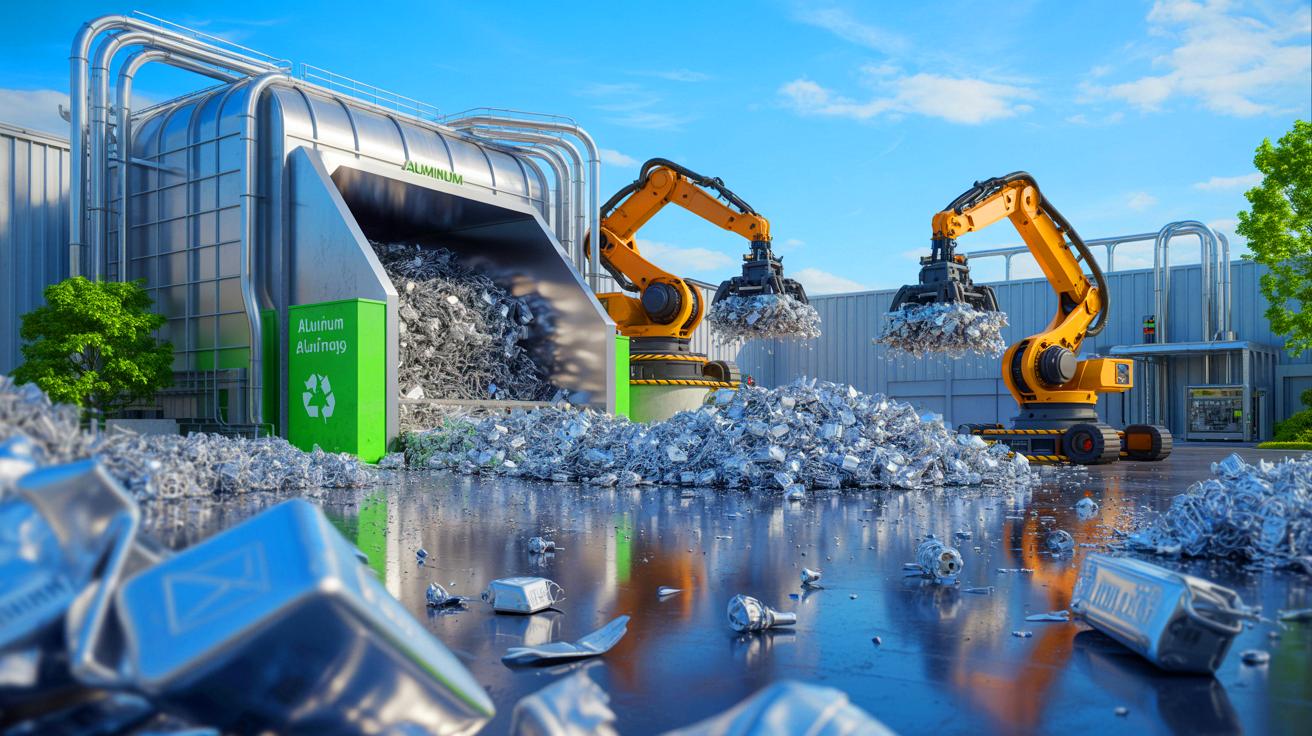IN A NUTSHELL
🔍 Speira integrates advanced technologies and AI to enhance recycling efficiency and transparency, setting new industry standards.
🌿 With ORBIS and RIVOS labels, Speira emphasizes sustainability by maximizing resource efficiency and minimizing carbon footprints.
♻️ By focusing on recycling and ending primary production, Speira aims to build a circular economy with significant energy and CO2 savings.
🔧 Speira redefines aluminum’s potential with recycling-friendly alloys, simplifying recycling processes and promoting innovation.
In the ever-evolving world of industrial processes, companies are increasingly turning to advanced technologies and artificial intelligence (AI) to enhance sustainability and transparency. A prime example of this shift is Speira, a company dedicated to revolutionizing recycling efficiency while setting new benchmarks for ecological accountability. Speira’s innovative use of technology not only boosts operational efficiency but also significantly reduces carbon emissions. Their commitment to fostering a circular economy by ending primary production and focusing on recycling is a testament to their forward-thinking approach. This transformation highlights the industry’s potential to achieve a sustainable future through informed decision-making and environmental stewardship.
Innovative Technologies in Recycling
Speira has made significant strides in revolutionizing recycling processes through the integration of cutting-edge technologies. Their Hamburg plant features a ‘transparent’ oven, enhanced by Industry 4.0 innovations, allowing for real-time monitoring of furnace operations. This system, equipped with advanced sensor and camera technologies, provides operators with precise insights into critical processes such as alloying and dross removal. By leveraging AI, Speira optimizes these processes, extending the life of hydraulic components and minimizing downtime, thus maximizing operational efficiency.
Moreover, Speira’s investment in tiltable rotary furnaces further demonstrates their commitment to transparency and efficiency. AI-driven charge-mix optimization solutions enable the company to enhance operational efficiency while reducing costs. This comprehensive data transparency supports superior ecological and economic performance, aligning with Speira’s vision of sustainable industrial practices. Such technological advancements equip Speira with the necessary insights to make decisions that are both efficient and environmentally conscious, setting a precedent for others in the industry.
The Significance of Sustainability and Transparency
Sustainability and transparency are integral to Speira’s operational philosophy. The company prioritizes offering customers detailed insights into the ecological impact of their products. By introducing labels like ORBIS and RIVOS, backed by third-party certification, Speira underscores their dedication to resource efficiency and a closed-loop system. ORBIS serves as a promise toward a sustainable future, guiding the industry toward a more circular economy.
Furthermore, RIVOS combines external scrap with low-carbon primary metal, maximizing resource efficiency and minimizing the carbon footprint. Speira’s transparency in providing detailed sustainability profiles empowers customers to make informed decisions, reflecting their belief in the power of knowledge. This emphasis on transparency sets a new benchmark in the industry, highlighting the importance of open communication in fostering trust and accountability. Speira’s approach demonstrates how sustainability and transparency can be seamlessly integrated into industrial practices.
Building a Circular Economy
Speira’s strategic decision to cease primary aluminum production marks a pivotal step toward a fully circular economy. By focusing solely on recycling, they aim to achieve up to 95% energy and CO2 savings compared to traditional primary production methods. With over 30 million tons of aluminum recycled worldwide annually, Speira leads efforts to increase the current 75% reuse rate toward complete circularity. Their strategy includes securing end-of-life scraps and investing in modern recycling equipment to enhance their recycling capacity.
Their state-of-the-art facility for recycling beverage cans exemplifies their commitment to circularity. This plant’s ability to recycle a can in just 60 days showcases their efficiency and dedication to CO2 reduction. Additionally, their expertise in recycling complex scraps, such as oily or painted metals, further solidifies their leadership in the recycling industry. Through collaborations with customers, Speira transforms linear business models into circular ones, promoting a sustainable approach that integrates recycled materials across the supply chain.
Redefining Aluminum’s Potential
Speira is pushing the boundaries of aluminum’s potential by exploring new applications and partnerships. Their focus on recycling-friendly alloys (RFAs) provides solutions with minimal ecological footprints, ensuring these alloys can easily start new life cycles. The development of alloys like VIA MARIS Njørdal, certified by the Water Revolution Foundation, highlights their innovative approach. This alloy not only reduces material use and weight but also enhances performance, showcasing RFAs’ potential in diverse applications.
By simplifying chemical compositions through post-casting processes such as annealing and rolling, Speira aims to reduce the complexity of recycling. Achieving the same physical properties with fewer alloys enhances aluminum recycling’s sustainability. This approach not only simplifies recycling but also contributes to a circular economy. Speira’s commitment to innovation and partnership with ambitious collaborators promises a future where aluminum’s potential is fully realized, embracing a sustainable and circular world.
As Speira leads the charge in sustainability and transparency, their efforts pose a critical question: How can more industries embrace similar technological advancements and sustainable strategies to create an eco-friendly and transparent world? The answer lies in collaboration, innovation, and a steadfast commitment to environmental stewardship.
This article is based on verified sources and supported by editorial technologies.
Did you like it? 4.5/5 (23)

